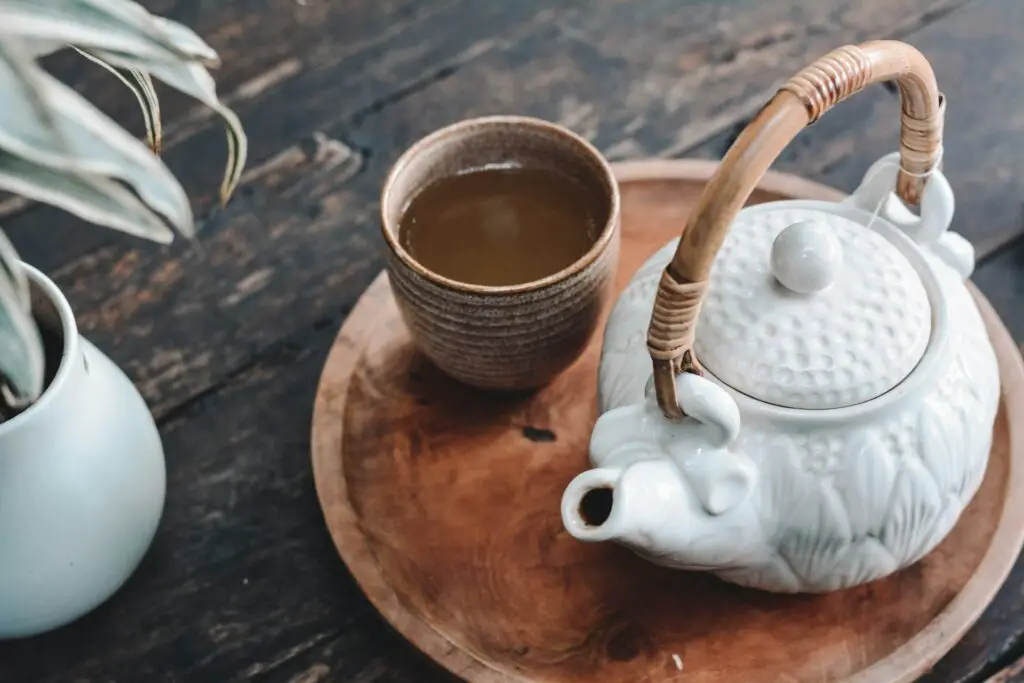In a world where stress often feels like an unavoidable part of life, finding natural ways to ease tension is a priority for many. One such remedy that has stood the test of time is tea. Not only is it a comforting ritual, but certain teas are particularly effective at promoting relaxation and reducing stress. Below, we explore some of the best teas for managing stress and how they help.
Chamomile Tea
Chamomile tea is perhaps the most renowned tea for its calming effects. It is derived from the chamomile flower and has been used for centuries as a natural remedy to reduce stress and aid in sleep. Chamomile contains apigenin, an antioxidant that binds to certain receptors in the brain that may decrease anxiety and initiate sleep.
Green Tea
Green tea, rich in antioxidants and amino acids, particularly L-theanine, is excellent for stress relief. L-theanine promotes relaxation without drowsiness, making green tea a suitable choice for those who need to unwind while remaining alert. It also helps in reducing the body’s physiological response to stress.
Peppermint Tea
Peppermint tea is not only refreshing but also extremely beneficial for relieving stress and anxiety. The menthol present in peppermint is a natural muscle relaxant. Drinking peppermint tea can provide overall relaxation and potentially relieve symptoms of anxiety and mental stress.
Lavender Tea
Lavender is well-known for its aroma therapeutic qualities, which help soothe the mind and decrease stress. A cup of lavender tea may help calm the nervous system, lower blood pressure, and reduce anxiety. Its fragrant scent also enhances the tea’s calming effects.
Lemon Balm Tea
Lemon balm tea has a mild sedative effect, making it a popular choice for reducing stress and anxiety. It helps to increase calmness and decrease alertness, making it perfect for evenings when decompressing from a stressful day.
Valerian Root Tea
Valerian root is often referred to as “nature’s Valium,” and for a good reason. It increases the levels of a neurotransmitter called gamma-aminobutyric acid (GABA) in the brain, which helps regulate nerve impulses and quiet anxiety. Drinking valerian root tea can help reduce stress and promote a sense of tranquility.
Passionflower Tea
Passionflower tea is another excellent herbal remedy for stress relief. It boosts the GABA in the brain, similar to valerian root, helping to lower brain activity and ease the mind. It’s particularly useful for those dealing with anxiety and sleep disturbances.
To fully benefit from stress-relieving teas, consider incorporating them into a relaxing routine. Choose a quiet time of day to sit back and enjoy your tea without distractions. The process of brewing tea and taking the time to sip it slowly can also serve as a meditative practice, enhancing the overall stress-reducing effect.
While tea can be a helpful tool in managing stress, it’s important to remember that it is not a cure-all. For those experiencing significant or chronic stress, it’s crucial to address the root causes and seek professional guidance if necessary. However, for many, these teas offer a gentle and natural way to ease the mind and soothe the spirit. Whether you’re a fan of floral, minty, or herbal flavors, there’s a stress-relieving tea out there that can be a comforting companion through your stress reduction journey.
Enhancing the Benefits: Tips for Tea Preparation and Consumption
To maximize the stress-relieving benefits of tea, proper preparation and mindful consumption are key. Here are some tips to enhance your tea-drinking experience:
Optimal Brewing: Each type of tea may require different temperatures and steeping times to unlock its full flavor and therapeutic properties. For example, green tea is best brewed with water at about 175°F for 1 to 3 minutes to avoid bitterness, while chamomile benefits from steeping in boiling water for up to 5 minutes to fully release its calming compounds.
Create a Relaxing Environment: The environment in which you drink your tea can significantly affect its soothing effects. Create a calming space by eliminating clutter, dimming the lights, or even playing soft background music. This setting can help enhance the relaxation process.
Regular Practice: Incorporating tea drinking into your daily routine can help build a consistent habit that your body and mind start to associate with relaxation and stress relief. Whether it’s a morning ritual or a pre-bedtime wind-down, consistency is key.
Mindfulness and Meditation: While drinking your tea, try to practice mindfulness or meditation. Focus on the sensations of the tea, such as the warmth of the cup in your hands, the aroma, the taste, and the feeling as it travels down your throat. This practice can help anchor you in the present moment and alleviate stress.
Avoid Caffeine Overload: While certain teas like green tea are beneficial for stress relief due to their L-theanine content, they also contain caffeine. It’s important to manage your intake if you are sensitive to caffeine, especially in the latter part of the day, to avoid sleep disturbances.
Combining Tea with Other Natural Stress Relievers
]
Tea can be part of a broader approach to managing stress, which may include other natural remedies and practices:
Aromatherapy: Combine your tea-drinking ritual with aromatherapy. Essential oils such as lavender or peppermint can be used in a diffuser to complement the effects of stress-relieving teas.
Physical Activity: Regular physical activity is another effective stress reliever. Consider gentle forms of exercise like yoga or walking, which can be particularly synergistic with the benefits of herbal teas.
Healthy Diet: A balanced diet can affect your mood and stress levels. Pairing your tea with a healthy meal or snack can help stabilize blood sugar levels, contributing to better overall stress management.
Professional Guidance: If stress continues to be overwhelming, it may be beneficial to seek professional advice. A healthcare provider can offer comprehensive strategies for stress management, which might include dietary changes, therapy, or medication.
Tea offers a simple yet powerful way to help manage daily stress. By understanding which teas are most effective for stress relief and how best to incorporate them into your routine, you can enjoy both their calming properties and their delightful flavors. Remember, the key to benefiting from stress-relieving teas lies in regular and mindful consumption within a lifestyle that promotes overall well-being.




